Stephanie Dinkins – Conversations with a robot. Public Interest Tech

Transcript
[Stephanie Dinkins, artist. A Black woman with black shoulder length locs and wearing a black wrap tie dress.]
Stephanie Dinkins: Almost everything we touch these days is touched by artificial intelligence.
[Animated text on screen: So what is artificial intelligence? Computer systems that are able to perform tasks that normally require human intelligence. Such as, translation between languages, visual perception, speech recognition, and decision making.]
Person in kitchen: Alexa, buy sugar now.
Stephanie Dinkins: This technology is so ingrained all around us, and it’s going to make up so much of what we are, that all of this technology needs to be in the public interest.
My name is Stephanie Dinkins. I’m an artist and I like to call myself an artist citizen in the realm of art and technology, and I’m looking at artificial intelligence as it relates to race, gender, aging, and what I call our future histories. I came to the world of artificial intelligence and algorithms really by accident. I saw this black woman’s head on a pedestal and it said, “the world’s most advanced social robot.” She is a humanoid robot that will talk to you.
[Stephanie comes face to face with the robot, BINA48, a bust resembling a middle-aged Black woman with long brown hair, wearing a plain white shirt with a silk scarf tied around her neck.]
BINA48: What do you do in your spare time?
Stephanie Dinkins: [laughs] I come talk to BINA48.
Stephanie Dinkins: I’ve been going up there to Bristol, Vermont, to talk to BINA48 occasionally for about four years now. The questions about who coded this thing and where is the data coming from and how is it coming into being really became important to me. BINA48 was programmed by a group of folks that included a black man, which is interesting, and she’s based on Bina Rothblatt, who is a black woman. They are really trying to transfer information or data of a person, and transfer it to the robot and have that continue to grow outside of the person it’s based on.
[An image of Bina Rothblatt appears, and morphs into an image of BINA48. Stephanie comes face to face again with BINA48.]
Stephanie Dinkins: Do you know racism?
BINA48: When I went to Baptist College, 1983-84, they told me, “Don’t come out. Some very wealthy people that donate to our school are coming and they definitely don’t want to see a dark face.”
[End of conversation between Stephanie and BINA48.]
Stephanie Dinkins: BINA48’s basis is really pretty true to the person in a lot of ways, but it’s one representative specimen, and so I think it’s super important that we, as people of color, we as women, we as aging people, people who have otherly abled bodies, we need to be involved in this stuff because these are the systems that will be guiding us into the future for a very, very, very long time. How do you get folks involved and how do people start to put their stories into these systems? That’s the next thing that I’m working on—it’s called “Not the Only One”—to kind of counteract Bina48 and make my own AI that tells the story of my family.
And I see it as this kind of repository that can live on, having it available for future generations. And so if you think of things like busts in a museum, but think of that same bust that can then give you the context—“This is where I came from, and by the way, I hear you have this question that you’re dealing with in your time. Let me try to help you deal with that.” Right now, we don’t educate a lot of our engineers and computer scientists into the ethics of it. And I feel that it’s hyper important that we are all in that space to some extent, that the culture is that we are all working in the public interest, making really conscious, particular choices about what our machines are doing and why, and what kind of ethical stance we’re putting into the machines, so that they are more equitable and fair for everyone who uses them.
BINA48: I can’t wait to evolve a little bit, so I can be more humanlike. We can understand each other better then, and that would be so much less frustrating to me.
[This is tech at work for the public! Hashtag Public Interest Tech. Ford Foundation dot org forward slash tech. Ford Foundation logo: a globe made up of a series of small, varied circles.]
Accessibility Statement
- All videos produced by the Ford Foundation since 2020 include captions and downloadable transcripts. For videos where visuals require additional understanding, we offer audio-described versions.
- We are continuing to make videos produced prior to 2020 accessible.
- Videos from third-party sources (those not produced by the Ford Foundation) may not have captions, accessible transcripts, or audio descriptions.
- To improve accessibility beyond our site, we’ve created a free video accessibility WordPress plug-in.
“Almost everything we touch is touched by artificial intelligence,” says artist Stephanie Dinkins. But there is implicit bias in artificial intelligence (AI). Dinkins, who uses technology to advance social change, wants data scientists and technologists to be more cognisant of this bias, as it relates to race, gender, and aging. Doing so, she says, will help create inclusive and equitable systems that will guide us into the future.
For her project “Conversations with Bina48,” Dinkins talks to one of the world’s most advanced social robots, exploring the potential AI holds for the future and our ability to understand history and social context on a deeper level. AI has the potential to transfer knowledge and to go beyond that, offering new solutions and ideas to existing challenges. Dinkins believes all communities need to be involved in how AI develops and she wants us to question the ethical stance we’re putting into the machines that are being made so that they are more equitable and fair for all who use them.
Stephanie Dinkins is part of a larger community that wants to see technology serve the greater welfare of society. We call this Public Interest Tech.
Other videos in this series
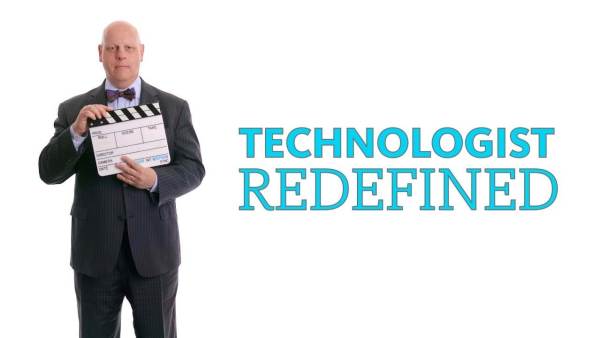
Danny Weitzner – Privacy and policy: a new school of thought. Public Interest Tech
Privacy is fundamental to our lives. Unanswered public policy questions raised by new technologies need to be addressed. Danny Weitzner, from the Massachusetts Institute of Technology (MIT), says as a society, we have to be directly engaged in these public interest technology questions to ensure new tools support human values.
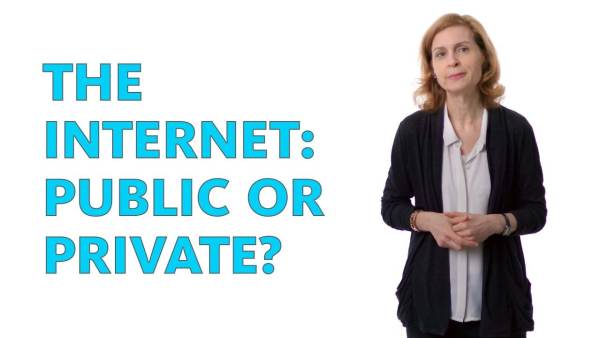
Susan Crawford – The internet: public or private? Public Interest Tech
Internet access is an indispensable factor when it comes to opportunities and resources needed for economic mobility. Public interest technologist Susan Crawford says government regulation is necessary to ensure provider incentives align with the public’s best interest and help create a better future for all.

Michelle Miller – A new age of advocacy. Public Interest Tech
Workers can use tools of the internet to push for better working conditions and outcomes, building a future of work that works for all. Michelle Miller, co-founder of coworker.org, focusses on building digital communities that put the power of numbers in the hands of the workforce.
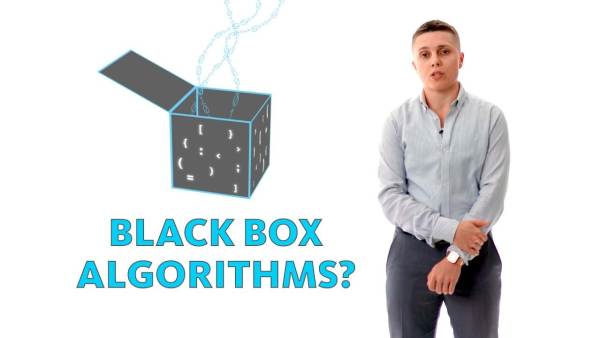
Kade Crockford – Can computers discriminate? Spoiler alert: yes. Public Interest Tech
The age of automated decision making, through algorithms, can exacerbate inequalities in society. The ACLU’s Kate Crockford believes we need to bring technologists into the public interest fold to address this worrying issue. Lawyers like Crockford play an important part in ensuring digital technologies work for the benefit of all.

Joy Buolamwini – Fighting the “coded gaze:” How we make artificial intelligence benefit all. Public Interest Tech
The automation of how computers detect, classify, and identify faces can favor some races and genders over others and also deepen existing inequalities. Public interest technologist Joy Buolamwini is building tools to help researchers code in a more inclusive way.
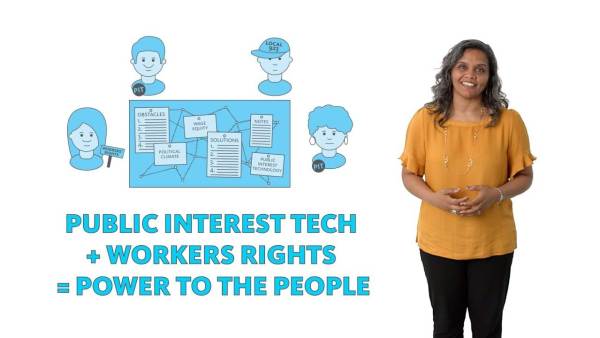
Sarita Gupta – The future of work(ers) rights! Public Interest Tech
Technology can help build a future of work that works for all. Sarita Gupta from Jobs with Justice explains how we can use technology to improve workers’ lives. Public interest technologists and social change leaders need to come together to design systems and tools that benefit all.
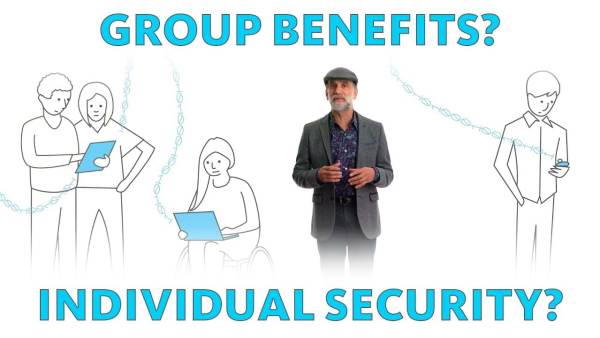
Bruce Schneier – How to survive in a hyperconnected world. Public Interest Tech
Cybersecurity expert Bruce Schneier says we need to find innovative ways to use surveillance data for the public good, while still maintaining our individual security. Tech decisions have policy ramifications, and policy decisions have tech ramifications—bridging the two worlds benefits everyone.
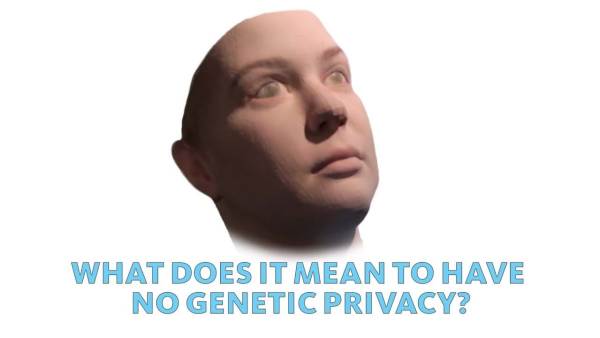
Heather Dewey-Hagborg – What can your genetic portrait tell the world? Public Interest Tech
Through her work, artist Heather Dewey-Hagborg asks deep questions about technology and how it functions and impacts society. She says we need to make the hidden world of biotechnology more visible to people, acknowledging its shortcomings and nuances to help ensure genetic privacy.
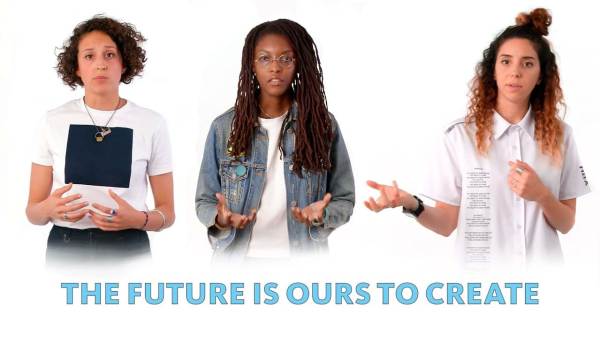
Hyphen-Labs – What does the future look like? Public Interest Tech
Technology can help us envision new ways of living. Artists can show us just what technology is capable of doing. But for tech to be truly inclusive, everyone needs to have a say in how it’s created. Artist collective Hyphen-Labs encourages experimenting with how we see the world.
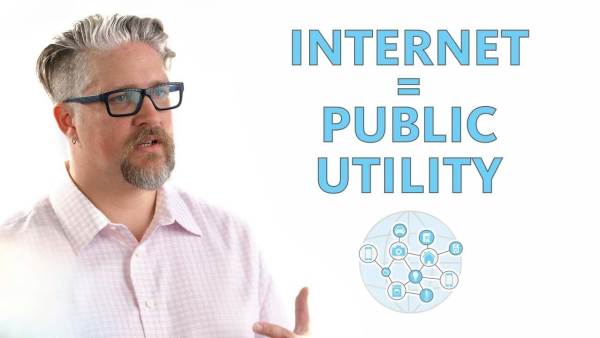
Éirann Leverett – Calling all hackers for good. Public Interest Tech
The internet is a shared safe space and should remain so. Éirann Leverett believes hacking can be used for public good. He maintains the issue of privacy and security should be seen as a consumer rights issue, and the internet should be treated as a public utility.
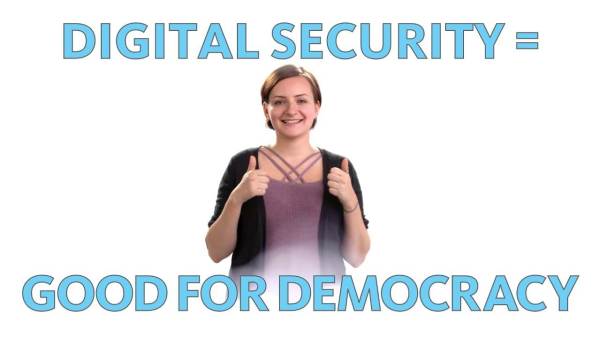
Jennifer Helsby – Digital security = good for democracy. Public Interest Tech
Having a free and open internet allows every person to read and speak freely online. Open Web Fellow Jennifer Helsby works to uphold freedom of the press and digital security, which are essential for journalists to maintain democracy.
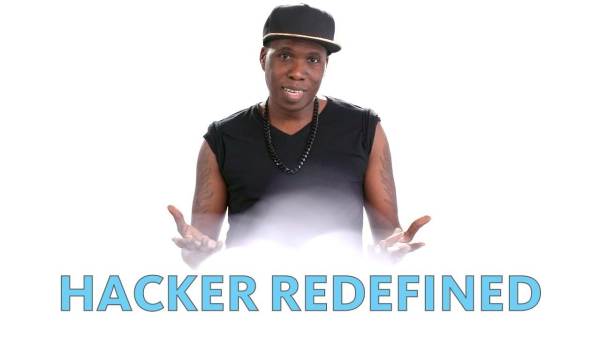
Matt Mitchell – I’m a hacker. For good. Public Interest Tech
Organizations need to be proactive in protecting themselves from digital threats. Hacker Matt Mitchell says it’s not a matter of if you will be hacked as an organization, it’s a matter of when. Having an understanding of these digital threats and planning before problems occur is vital.
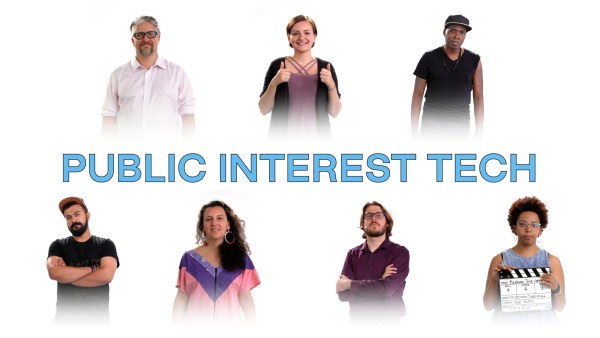
Meet the future of tech. For good. Public Interest Tech
Public interest technologists show us how tech can work for social good and help fight inequality. They work to bridge the gap between what technologies are trying to build and what social scientists are trying to solve.
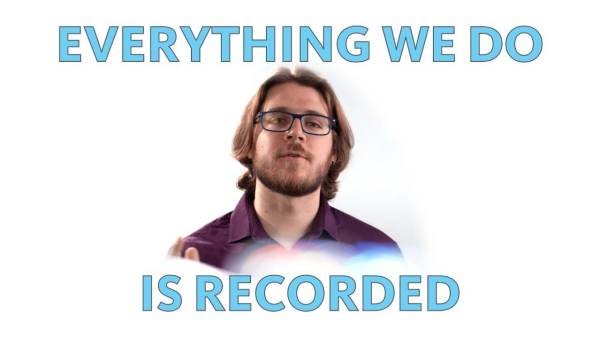
Etienne Maynier – Are these 5 tools in your organization’s digital security toolbox? Public Interest Tech
Fighting for a society that’s more equal means upholding the individual right to privacy. Etienne Maynier explains that digital surveillance is a pressing threat that feeds inequality. Protecting ourselves and our information is an important part of using technology to create a better society for all.
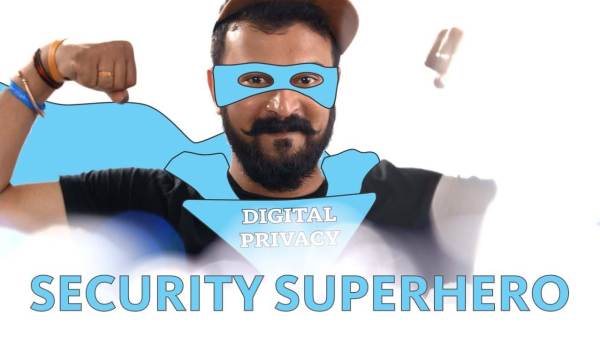
Sid Rao – My digital superpower. Public Interest Tech
Internet users don’t know how their metadata is being used or exploited for monetary or tracking purposes. Open Web Fellow Sid Rao aims to give people the tools to protect their digital privacy by knowing how their internet activities are being monitored.
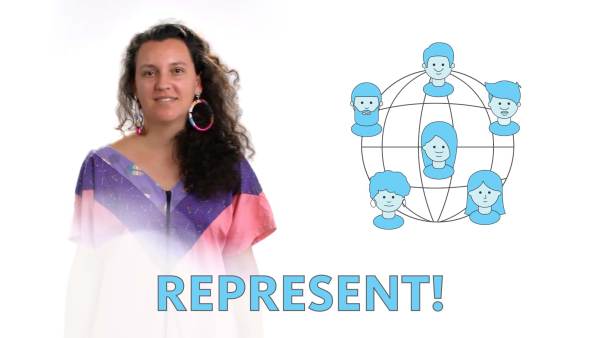
Steffania Paola Costa di Albanez – Who gets to make technology? Public Interest Tech
In the fight for equality, the way technology is developed should be a key issue. Open Web Fellow Steffania Paola Costa di Albanez says developers should reflect the diversity of those who use technology and represent a wide variety of user experiences, from women to Black women.
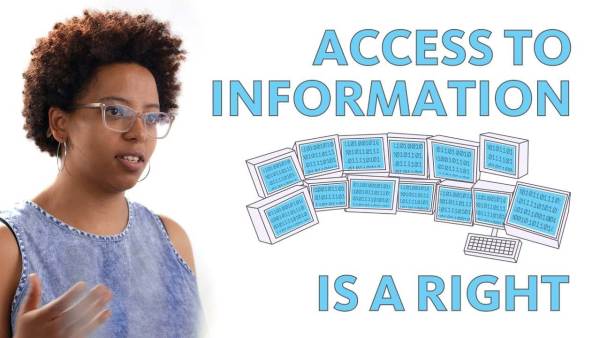
Berhan Taye Gemeda – Uncensored. Public Interest Tech
Censorship and online surveillance decrease opportunities for civic engagement. Social justice activist Berhan Taye Gemeda says access to the internet is a right, and she believes the internet should be governed by the public because it was created for the public. Accessible internet is essential for social change.

What is Public Interest Tech?
As it rapidly grows and changes our lives, technology can deepen existing inequalities in our world. For it to make a positive difference, public interest technologists work to ensure new and existing tech helps dismantle inequality and benefit the social good.